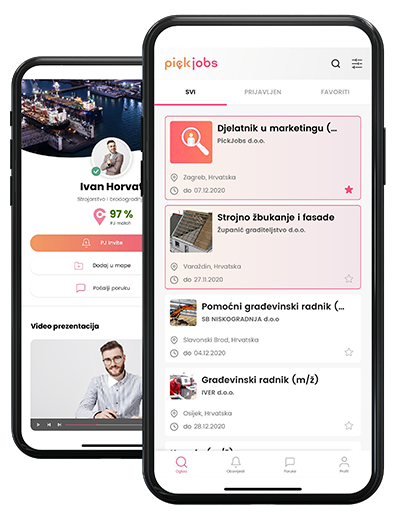The remote work mode gained popularity after the corona pandemic appeared, and it represents working remotely or working from home. For example, you are employed in an organization, but you perform your daily duties from the comfort of your home, cafe or hotel room. Of course, this type of business, often called a flexible work model, existed even before the pandemic, but many organizations recognized its advantage only when they were forced to. Although there are still wrong assumptions, we bring you the main advantages of working remotely or working from home.
- Flexibility
Flexibility as an advantage of working from home refers to the freedom to decide when and where to work. In other words, remote employees can work from home, from a cottage on the sea or from a hotel on the other side of the world. Likewise, they can work from their bedroom, coffee shop or rented co-working office. In addition, working from home allows employees to get out of the 9 to 5 job. Someone likes to work from 7 to 3, and someone from 11 to 7. Also, employees can work intermittently with longer breaks. In other words, I can adjust my working time to other responsibilities like taking the kids to school, cooking, going to the gym, etc.
- Smaller loss of time on transportation and travel
Employees save time by working from home. Just think about how much time you spent commuting to and from work. In big cities, on a daily basis, you can save up to 3 hours traveling to and from the office.
- Savings
There are many ways to save money when working from home. One of them is saving on fuel or transport tickets. In addition, when you work from home, you don't have to spend so much on wardrobe, and you save money that you would have spent on lunch or drinks with colleagues.
- Work when you are most productive
One of the biggest advantages of working from home is that you can work when and where you are most productive. The office atmosphere and noise does not suit many people who need to focus on specific tasks that they have to perform on a daily basis. This is often the case with developers, some of whom like to work at night.
- Better work-life balance
Given the greater freedom to manage their own time, employees who work from home are better able to balance work and private life. This means more time (and energy) for family, friends and hobbies.
- Advantages for the employer
One of the main privileges of the remote working mode is a wide choice of workers, because the employer has the opportunity to hire a top specialist, regardless of where he is located. In this way, he can choose the best for his organization and create a team that will realize his business visions. Another advantage is financial savings. Companies that work exclusively remotely do not have a physical office, which they should have fully equipped and invested enough money to make the workers feel comfortable. Therefore, they do not pay rent, landscaping, utilities and other costs that come with a business premises. Of course, the employer still has to invest part of the money in the workers in order to provide them with quality equipment for working from home, as well as higher monthly incomes.
- Change of generations
Increasingly rapid digitization has created a large number of job positions that you could not even hear about until a few years ago, and these are mostly jobs led by the newer generations. This is precisely why they are the most frequent users of the remote mode of operation. By getting used to such a way of doing business, they moved away from traditional office work and thereby additionally encouraged employers to create as many opportunities as possible for flexible work. In addition, there is an increasing number of young workers who want to live as digital nomads and carry out their daily work duties in places of their own choosing.
Work from home in numbers
If you've ever wondered how many people around the world work remotely and what their employers and they themselves think about it, read what the research shows.
56% of companies in the world offer employees to work remotely full-time or part-time.
99% of employees would like to work remotely forever, even if only part of the total working time.
75% of employees say that it is easier for them to work from home because they are not interrupted.
64% of recruiters say that it is easier for them to hire the best candidates if the company offers the option of remote work.
74% of employees say they would stay longer working for employers that offer work from home.
Employees save an average of 51 minutes by working from home instead of commuting to and from work.
The IT & Tech industry leads the way in terms of the percentage of people who work from home with 77% of remote employees.
20% of employees who work from home are lonely.
29% of employees who work remotely often or always feel exhausted.
60% of remote employees say their work-life balance has improved since working from home.
Conclusion? Working from home has irreversibly entered our lives. Although it has many advantages for employees and companies, it also brings some some challenges to face.

 Croatia
Croatia Bosnia and Herzegovina
Bosnia and Herzegovina Serbia
Serbia Crna Gora
Crna Gora North Macedonia
North Macedonia Ukraine
Ukraine Albania
Albania Kosovo
Kosovo Austria
Austria Deutschland
Deutschland Switzerland
Switzerland









